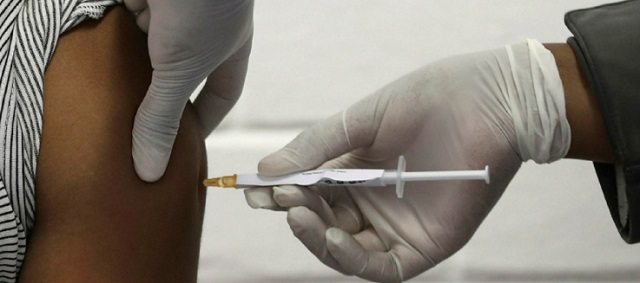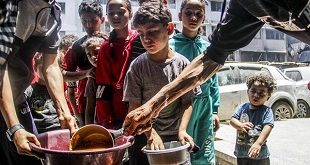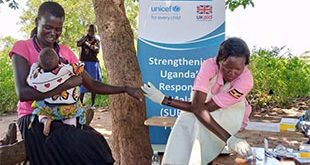
AstraZeneca’s CEO says governments and private sector can ensure vaccines reach those in need
COMMENT | PASCAL SORIOT | Although we have come a long way in the fight against COVID-19, the only thing that will alter the course of the pandemic decisively is a genuine act of global solidarity.
The science and health-care communities have mobilised on a scale never before seen in our lifetime, taking the fight to a deadly virus that is still sweeping the world and leaving a trail of personal loss and economic devastation in its wake. This unprecedented global response has led to the development of multiple highly effective vaccines in record time, allowing for more than 2 billion doses to have been administered globally as of this writing. AstraZeneca has contributed 500 million doses to this global effort.
The vaccination effort has been nothing short of extraordinary. Thousands of lives are being saved every day as a result of urgent and committed global collaboration. But while some countries have begun to breathe a sigh of relief and imagine a post-pandemic world, the overwhelming majority of the world’s population remains unprotected.
Death rates remain unacceptably high, and the continued spread of the virus threatens the progress we have made. Our goal must be to eradicate COVID-19. That means reducing its incidence to zero everywhere, not just within the borders of specific countries. In the face of an evolving virus that will continue to acquire new mutations, a rise in cases anywhere threatens us all.
Moreover, despite our best efforts, the world’s poorest countries are still bearing the heaviest burden. The leaders of the International Monetary Fund, the World Bank, the World Health Organisation, and the World Trade Organisation have noted the world is increasingly at risk of creating a two-track pandemic, with richer countries getting quick access to vaccines while the poorest are left behind.
At AstraZeneca, we have always viewed the pandemic as a global challenge, which is why we have already shipped our vaccine to more than 160 countries. Moreover, when we established our partnership with the University of Oxford to develop the vaccine, we decided to provide it at no profit, because our top priority was to protect global health.
It has now been one year since we became the first vaccine producer to commit to the Gavi COVAX Advance Market Commitment, a global initiative to impel manufacturers to produce enough doses to protect developing countries. COVAX is a unique coalition. Anchored in a shared commitment to science, innovation, and collaboration, it is driven by a desire to fight the pandemic in the fairest and fastest way possible.
But this collective effort is not nearly enough given the work that still lies ahead of us. To vaccinate the entire world as quickly as possible, international organisations, governments, health leaders, industry, and civil society must do more. The IMF and others have called on the governments of advanced economies to contribute $50 billion more to the global vaccination drive. Vaccine donations are also needed. In recent weeks, Japan, Spain, Sweden, and the United States, among others, pledged more doses to COVAX, but unlocking additional supplies will require continued work with other governments.
Those of us in the private sector need to devise new ways to ensure that vaccines are reaching those in need. The waiver of intellectual-property rights under the Agreement on Trade-Related Aspects of Intellectual Property Rights (TRIPS) is not, as some have suggested, a quick fix to immediately increase the supply of vaccines. In fact, this approach will take many months to yield any extra doses, which is far too late for millions of people in underserved communities.
We have set out a different approach, similar to what WTO Director-General Ngozi Okonjo-Iweala has called a “third way.” Our model at AstraZeneca rests on our not-for-profit pricing commitment and technology transfers. This offers a way not only to scale up production immediately, but to do so to consistently high safety and efficacy standards globally. We have built more than a dozen regional supply chains around the world, both relying on our own manufacturing capacity and sharing our know-how with more than 20 partners. Each will now be fully equipped to start adding to our total output.
We know from our own experience how important these forms of collaboration are. Many attempts to produce more vaccines will face technical, logistical, and even political obstacles, especially where expertise is limited, or trade restrictions create ripple effects through supply chains. But whatever the hurdles, close cooperation can overcome them.
A year ago, many world leaders came together in solidarity and established the COVAX facility to help distribute vaccines to the entire world. We hope the next phase in the journey will be marked by even greater ambition and collaboration. We still need to reach billions of people, and the world is counting on us to deliver.
****
Pascal Soriot is CEO of AstraZeneca.
Copyright: Project Syndicate, 2021.
 The Independent Uganda: You get the Truth we Pay the Price
The Independent Uganda: You get the Truth we Pay the Price



